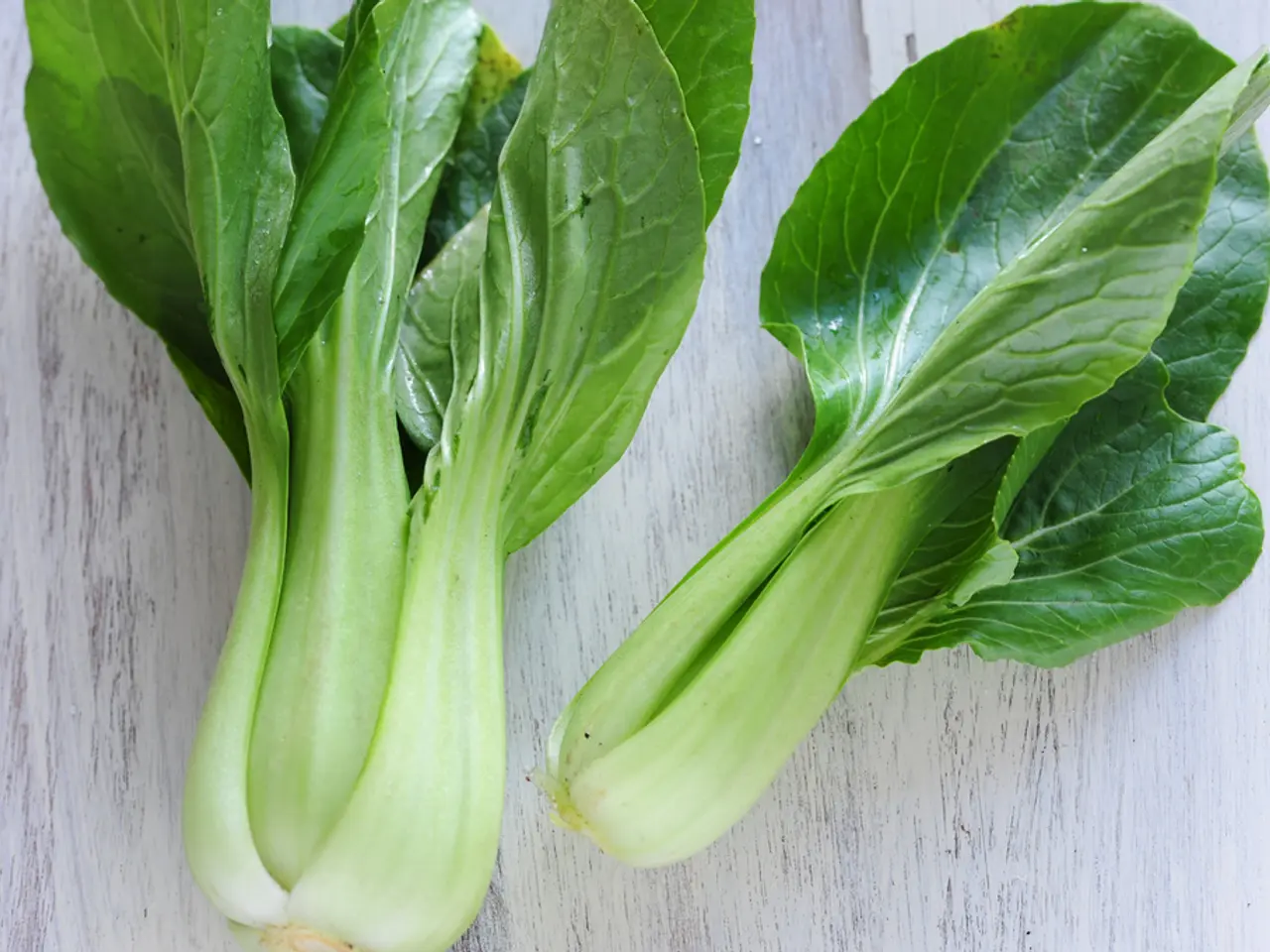Compounds known as Flavonoids: Characteristics, advantages,food sources, supplement options, and additional insights
In the realm of plant-based compounds, flavonoids stand out as a group of natural substances with a wide array of health benefits. These antioxidative powerhouses are found in an abundance of fruits, vegetables, and other plant products, making them accessible to a diverse range of diets.
Flavonoids encompass six main types: flavonols, flavones, flavanones, isoflavonoids, anthocyanidins, and flavan-3-ols. Each type contributes uniquely to various health benefits, primarily through antioxidant, anti-inflammatory, and other specific bioactive mechanisms.
Flavonols, such as quercetin and kaempferol, are known for their strong antioxidant effects. They help neutralize free radicals that can damage cells, modulate inflammation, and improve cardiovascular health by enhancing endothelial function and lowering blood pressure. Foods rich in flavonols include onions, kale, lettuce, tomatoes, apples, grapes, berries, tea, and red wine.
Flavones, like apigenin and luteolin, exhibit anti-inflammatory effects and may aid in cancer prevention by inhibiting cancer cell proliferation and supporting apoptosis (programmed cell death). Celery, parsley, red peppers, chamomile, mint, and Ginkgo biloba are some of the sources of flavones.
Flavanones, such as hesperidin, naringenin, and abundant in citrus fruits, improve cardiovascular health by enhancing endothelial function, reducing blood pressure, and modifying inflammatory pathways. They also support metabolic health by improving insulin sensitivity and glucose regulation, which aids in diabetes management. Foods rich in flavanones include oranges, lemons, limes, grapes, and grapefruit.
Isoflavonoids, found in soybeans, tofu, beans, lentils, and peas, can modulate hormone activity due to their structural similarity to estrogen. This hormone modulation can benefit metabolic health and potentially reduce risks associated with hormone-related conditions.
Flavan-3-ols, or catechins in green tea, epicatechins, are potent antioxidants with anti-inflammatory properties. They support cardiovascular function, reduce atherosclerosis risk, and may enhance cognitive function by improving cerebral blood flow and reducing oxidative stress. Foods rich in flavan-3-ols include bananas, apples, blueberries, peaches, pears, cocoa, chocolate, tea, and peaches.
Anthocyanins, the pigments that make up the colours in plants, fruits, and flowers, are beneficial for cardiovascular health. Foods rich in anthocyanins include red grapes, red wine, cranberries, blackberries, strawberries, elderberries, black plums, cherries, blood oranges, eggplant, and red cabbage.
Research suggests that diverse flavonoid intake is associated with lower risks of all-cause mortality, cardiovascular disease (CVD), type 2 diabetes, cancer, and respiratory diseases. The bioactive effects of flavonoids support chronic disease prevention, metabolic health, and cognitive function maintenance.
However, it is important to note that taking flavonoid supplements may negatively affect a person's health, and individuals should talk with a healthcare professional or dietitian before taking supplements.
In conclusion, flavonoids are a vital component in many medicines and medical research, and their potential beneficial health effects are a subject of ongoing research. By incorporating a variety of flavonoid-rich foods into your diet, you can enjoy the numerous health benefits these powerful antioxidants have to offer.
- Flavonoids, natural substances with diverse health benefits, are found in an abundance of fruits, vegetables, and other plant products, making them accessible to a multitude of diets.
- Flavonols, like quercetin and kaempferol, are known for their strong antioxidant effects and can contribute to better cardiovascular health by enhancing endothelial function and lowering blood pressure.
- Isoflavonoids, found in soybeans, tofu, beans, lentils, and peas, can modulate hormone activity and potentially reduce risks associated with hormone-related conditions due to their structural similarity to estrogen.
- Anthocyanins, the pigments that make up the colours in plants, fruits, and flowers, are beneficial for cardiovascular health.
- Research indicates that diverse flavonoid intake is associated with lower risks of all-cause mortality, cardiovascular disease, type 2 diabetes, cancer, and respiratory diseases.
- However, taking flavonoid supplements may negatively impact a person's health, and it is advisable for individuals to consult a healthcare professional or dietitian before taking supplements.
- By incorporating a variety of flavonoid-rich foods into your diet, you can enjoy the numerous health benefits these powerful antioxidants have to offer for chronic disease prevention, metabolic health, and cognitive function maintenance.




